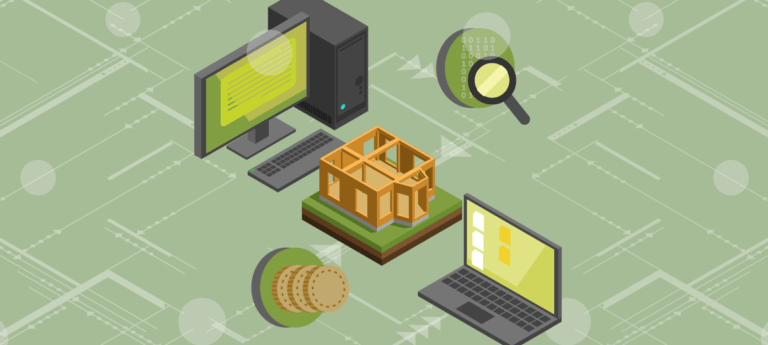You may have heard of blockchain and its recent history revolutionizing the cryptocurrency market, but have you ever thought about how it could change the construction industry?
What is Blockchain?
A blockchain is a digital public ledger of agreements (financial transactions, contracts, etc.) that are tied together chronologically into groups of information called “blocks.” This chain of blocks is encrypted to create a highly secure way for two or more parties to trade money, share information, and execute contracts without a central authority like a bank or government to authenticate the transaction. Instead, a blockchain works around the need for middlemen by making the ledger public and making every user a real-time verifier. Any changes to the block are required to pass an inspection by all of the blocks in the chain.
Ok, So What Does Blockchain Have to Do with the Construction Industry?
Blockchain is a rising interest in the construction industry for its ability to create, verify, and audit contracts in real-time between companies anywhere in the world without third-party authentication. The decentralized public nature of blockchain creates new ways for construction companies to track the flow and delivery of goods and services, contract deliverables, and payments at the precise moment they happen. Allowing companies to know exactly what is happening on their construction sites, where it’s happening, and who has sent and received, completed, or approved the action makes blockchain potentially valuable to the construction industry.
One of the main advantages of utilizing blockchain technology in the construction industry is the introduction of smart contracts. A smart contract is an automatic self-executing contract between the commissioner and the construction worker(s) and/or company(ies) providing the services or goods.
In a blockchain smart contract, the project begins with a chronological outline of the project’s detailed steps. A contractualized budget for every step of the project is determined and the entire project’s funds are gathered and deposited into a cryptocurrency-based wallet. Each step in the construction project is linked to a block in the blockchain with specific deliverables and conditions to be met. Once contractors complete the task and the work has passed inspection or the delivered goods have been received, the block is accepted and added to the chain, and the funds are paid to the corresponding parties from the project wallet.
This process eliminates any disputes over pay and streamlines the payment process. When the work is completed or the materials are delivered and approved, the system automatically pays the pre-established amount directly to the appropriate people. By removing time-consuming paper processes, such as payment applications, smart contracts using blockchain can increase productivity, speed up project and payment timelines, and as a result, reduce costs to the overall project.
Blockchain technology also has the ability to streamline supply chain and construction schedules. Construction projects often source materials and workers from around the country or around the world. With smart contracts, everyone can see the moment materials have been delivered, which can automatically trigger the next shipment to be placed or for contractors to be scheduled. By starting each task immediately after the previous one is completed, construction companies can save enormous amounts of time and money.
So What Does All This Really Mean?
While talk of intricate, complex blockchain contracts and project plans that include every detail of a project may be a long way off, blockchain technology still offers some advanced features that construction companies could begin to use in the near future. Blockchain offers the ability to streamline straightforward two-party agreements and efficiently plan and manage a project’s schedule and resources in real-time with automatic updates, payments, and orders. Perhaps someday soon when you contact Sierra View for your Pre-Construction appointment, we will be able to map out your construction project using blockchain technologies.
